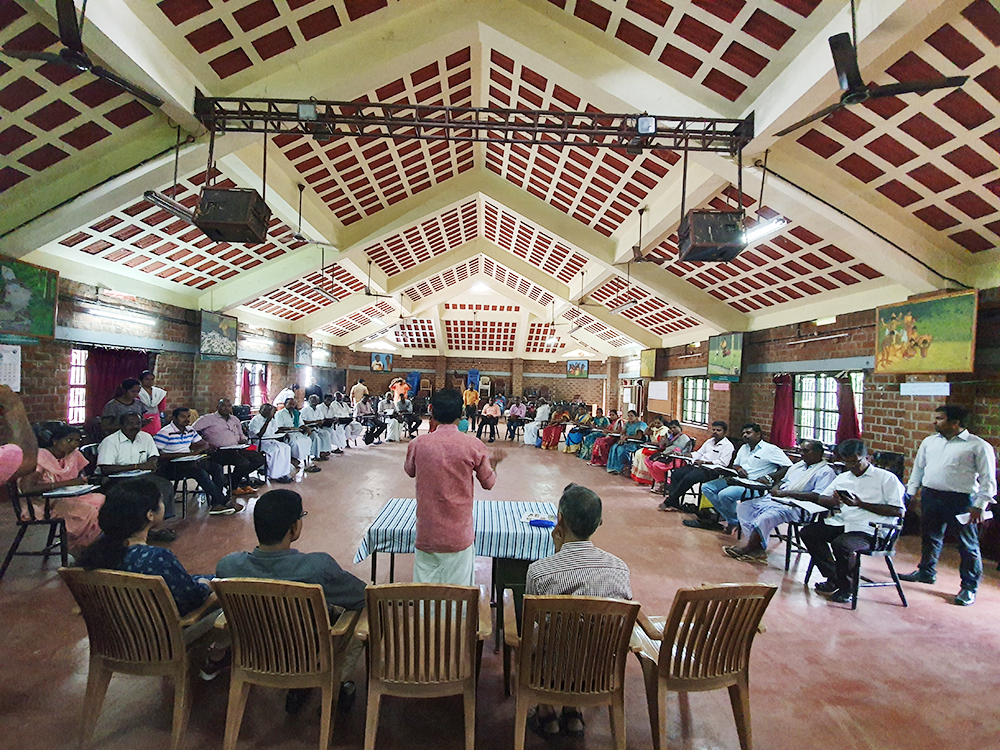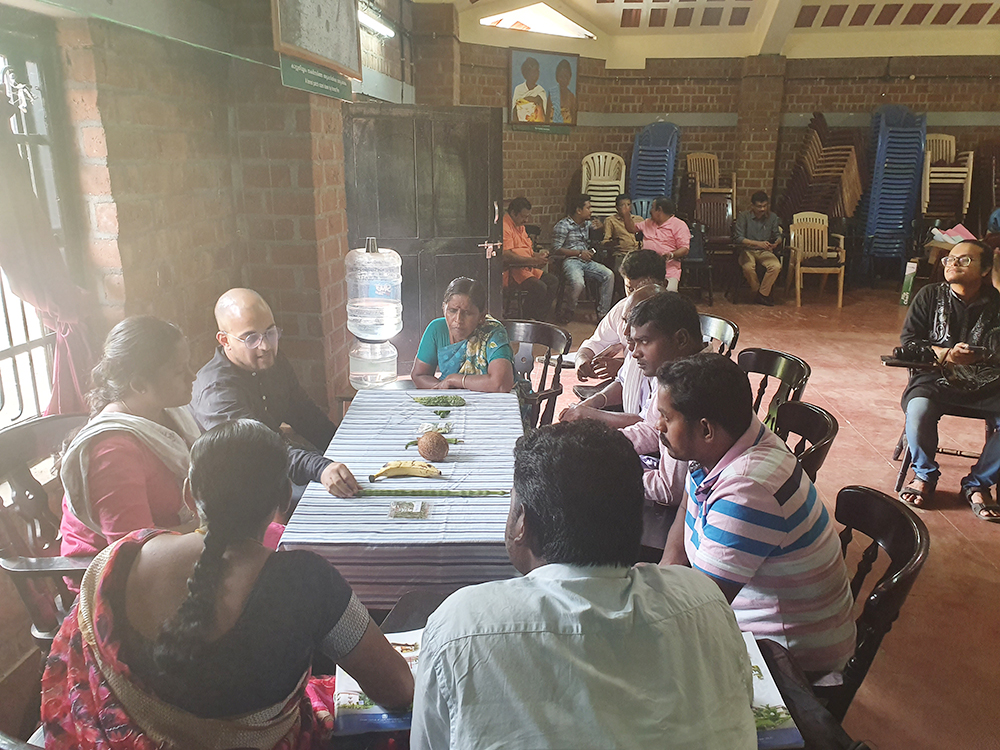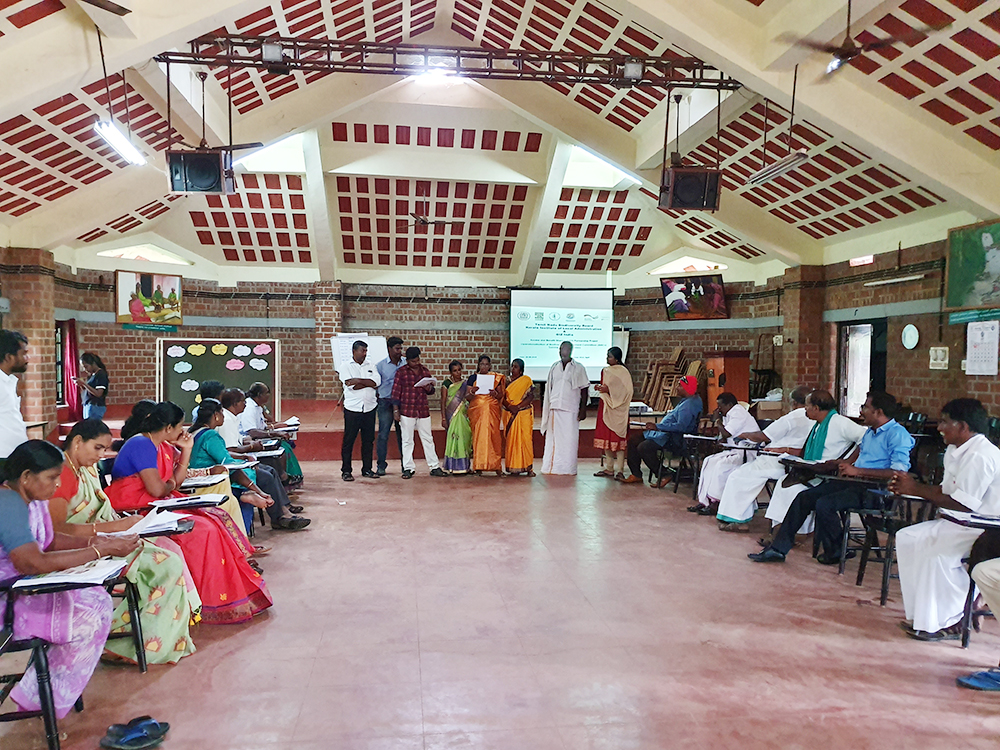29 Aug, 2019
Biodiversity Diversity Management Committees (BMC) are decentralised, third-tier institutional structures established under Section 41(1) of the Biological Diversity Act, 2002. It is the mandate of every local body to establish BMC’s in their territorial jurisdiction. A BMC’s main function is to document People’s Biodiversity Registers (PBRs). It is also responsible for ensuring that biological resources in its area are used sustainably. The Access and Benefit Sharing Partnership Project carried out a Capacity Needs Assessment in Madurai, Tuticorin and Namakkal in 2018 and found that there is large divergence between the present and future/intended state of knowledge, attitude and practices (KAP) required to fully operationalise BMCs. The BMC members need to receive tailored information on ABS and be convinced of its potential for the communities. The ultimate objective of the trainings is to enable and encourage BMC members to fulfil mandated as well as required role in ABS process.
In partnership with Kerala Institute of Local Administration (KILA), the Access and Benefit Sharing Project developed training modules on various aspects of the Biological Diversity Act and ABS using participatory approach. The training modules focused on:
The training was held at the KILA Centre for Tribal Development and Natural Resource Management (CTDNRM), Attapadi during 26-29 August 2019. Attapadi is a scenic town in Western Ghats well-known for conservation initiatives of tribal communities and is 20 km from Silent Valley National Park in Kerala.
The training began with a speech by Mr. K. Sivasankaran, Vice President, Attapadi Block Panchayat. He spoke about various initiatives of the Attapadi BMC and welcomed participants to visit the BMC and interact with the BMC members. Mr. Mathew Andrews, Assistant Director of KILA and course coordinator provided an overview of the 3-day training and encouraged the participants to use this opportunity to interact with the trainers, KILA staff and other BMC members. Mr. K. Gopi, and Mr. S. Umesh, Coordinators at KILA-CTDNRM, Agali led the field visits during the training.
Members of pilot BMCs under the ABS Partnership Project participated in the training. The project has strategically selected 10 block-level BMCs across 8 districts in Tamil Nadu to develop ABS good practices. Twenty-four members of various BMCs in Radhapuram block (Tirunelveli district), Natham and Shannarpatti blocks (Dindigul district), Kariapatti (Virudhunagar district), Melur and Sedapatti (Madurai district), Thiruppuvanam (Sivagangai district) and Thiruvattaru (Kanyakumari district) participated in the training.
Inputs gathered from participants will be used to revise the training modules to conduct Training of Trainers in coming months.


Marketplace to explain biological resources Normally Traded as Commodities

Presentation of group work by the BMC members
Field visit to document PBR
© 2014 IGBP. All Rights Reserved.
Site By: Virtualpages
